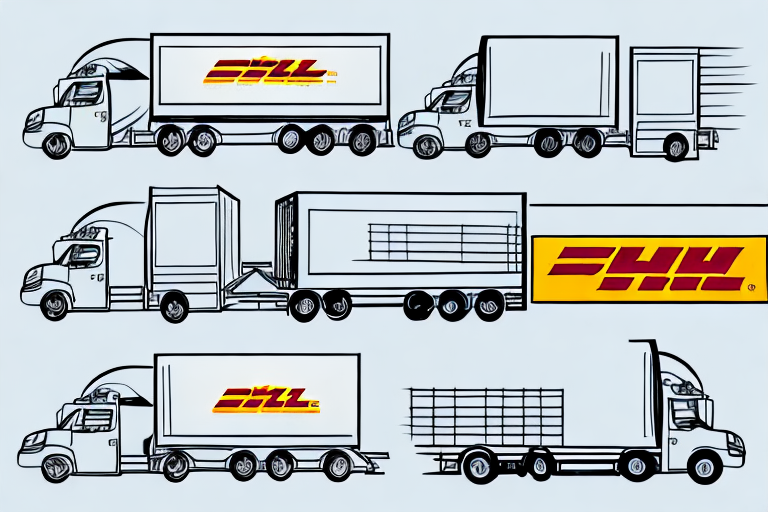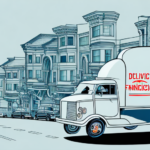Understanding the History and Evolution of DHL and UPS
To comprehend the dynamic between DHL and UPS, it's essential to delve into their individual histories and how they have evolved over time. DHL was founded in 1969 in San Francisco by Adrian Dalsey, Larry Hillblom, and Robert Lynn—their initials form the company's name. Initially a courier service, DHL expanded internationally in the early 1970s, quickly establishing itself as a significant player in global logistics. Over the decades, DHL has focused on international express deliveries, becoming a leader in cross-border shipping.
Conversely, UPS was established much earlier, in 1907, in Seattle as a messenger company. It transitioned into package delivery and began air operations in the 1980s. By the late 1990s, UPS had grown into the world's largest package delivery company, offering a vast array of services including ground, air, and ocean freight. UPS has consistently expanded its logistics and supply chain solutions, catering to diverse business needs worldwide.
Both companies have navigated significant industry challenges. In the 2000s, DHL encountered financial hurdles, leading to the restructuring of its operations and the sale of its domestic delivery service in the United States. Meanwhile, UPS has continued its expansion and innovation, particularly in sustainability efforts such as investing in alternative fuel vehicles and renewable energy sources.
Comprehensive Shipping Services Offered by DHL and UPS
DHL's Shipping Solutions
DHL offers a broad spectrum of shipping services tailored to various needs:
- International Express: Fast and reliable cross-border shipping with extensive global coverage.
- E-commerce Solutions: Specialized services for online businesses, including warehousing and fulfillment.
- Freight Services: Air, sea, and road freight options for large shipments.
With a presence in over 220 countries and territories, DHL's expansive network ensures efficient global logistics.
UPS's Shipping Solutions
UPS provides a diverse range of services designed to meet various shipping requirements:
- Domestic and International Shipping: Comprehensive package delivery options within the U.S. and globally.
- Specialized Services: Solutions tailored for healthcare, automotive, and government sectors.
- Supply Chain Management: Integrated logistics and supply chain solutions for businesses.
UPS's strong presence in North America and Europe, coupled with an expanding network in Asia and the Middle East, positions it as a formidable competitor in the logistics industry.
Comparing Pricing and Delivery Options of DHL and UPS
Pricing Structures
When evaluating shipping services, pricing is a critical factor:
- DHL: Generally more expensive for international shipments due to its extensive global network and specialized services.
- UPS: Offers more competitive pricing for domestic shipping within the United States, with scalable options for businesses of all sizes.
Both companies provide flexible pricing models based on shipment size, weight, and delivery speed. It's advisable to obtain quotes directly from their respective websites to determine the most cost-effective option for your specific needs.
Delivery Options and Reliability
Reliability and delivery speed are paramount for businesses:
- DHL: Known for its reliable international delivery with advanced tracking features, including real-time updates and delivery notifications.
- UPS: Offers reliable domestic and international services with robust tracking capabilities, though DHL's system is often considered more advanced for global shipments.
Both companies have invested in technology to enhance their tracking systems, ensuring customers can monitor their packages throughout the shipping process.
Tracking and Managing Your Shipments with DHL and UPS
DHL Tracking Features
DHL provides comprehensive tracking services that include:
- Real-Time Tracking: Monitor your package's journey in real-time through the DHL Tracking Portal.
- On Demand Delivery: Customize delivery preferences, such as selecting specific delivery dates or locations.
- Automated Notifications: Receive updates via email or SMS about your shipment status.
UPS Tracking Features
UPS offers robust tracking solutions, including:
- UPS Tracking: Access tracking information through the UPS Tracking System using your tracking number.
- UPS My Choice: Customize delivery options, receive alerts, and manage delivery preferences directly from the UPS My Choice portal.
- International Tracking: Comprehensive tracking for international shipments, ensuring visibility across borders.
Choosing the Right Shipping Service for Your Business Needs
Factors to Consider
Selecting between DHL and UPS depends on various factors specific to your business:
- Shipping Volume: Larger volumes may benefit from UPS's scalable solutions and competitive domestic rates.
- International Reach: DHL is ideal for businesses with significant international shipping needs due to its extensive global network.
- Specialized Services: UPS offers specialized solutions for industries such as healthcare and automotive, which may be crucial for certain businesses.
- Budget Constraints: Evaluate the cost-effectiveness based on your shipping frequency and package sizes.
Customer Service and Support
Both DHL and UPS are renowned for their customer support:
- DHL: Provides personalized customer service with dedicated account managers for tailored solutions.
- UPS: Features a large customer service team offering immediate assistance through various channels, including phone and online chat.
Common Challenges with DHL and UPS Shipping Services
Potential Issues
Despite their strengths, users may encounter certain challenges:
- Delays: Unforeseen delays due to weather, customs, or operational issues can impact delivery times.
- Package Handling: Instances of lost or damaged packages, although both companies have protocols to address and compensate for such issues.
- Unexpected Fees: Additional costs like customs duties and taxes can arise, especially with international shipments.
Mitigating Challenges
To minimize potential issues:
- Insurance: Utilize shipping insurance options to protect against loss or damage.
- Clear Documentation: Ensure all customs and shipping documentation is accurate to avoid delays.
- Proactive Tracking: Regularly monitor your shipments and communicate with the carrier if discrepancies arise.
Future Trends in the Shipping Industry: DHL and UPS Innovations
The shipping industry is rapidly evolving with technological advancements and changing consumer demands. Both DHL and UPS are at the forefront of these changes:
- Automation and Robotics: Implementation of autonomous vehicles and drones to enhance delivery efficiency.
- Sustainability Initiatives: Commitment to reducing carbon footprints through electric delivery vehicles and investment in renewable energy.
- Data Analytics: Leveraging data to optimize delivery routes, predict shipment delays, and improve customer service.
- E-commerce Integration: Expanding services to support the booming online retail sector, including advanced fulfillment and last-mile delivery solutions.
These innovations are set to transform the logistics landscape, making shipping faster, more reliable, and environmentally friendly.
Conclusion
The relationship between DHL and UPS is characterized by both competition and collaboration within the global shipping industry. When deciding between the two, businesses should assess their specific needs, including shipping volume, international reach, specialized service requirements, and budget constraints. Both companies offer robust tracking systems and customer support, though DHL excels in international logistics while UPS provides competitive domestic rates and specialized industry solutions.
Looking ahead, the shipping industry will continue to evolve with advancements in technology and sustainability practices. DHL and UPS are well-positioned to adapt to these changes, ensuring they remain essential partners for businesses navigating the complexities of global logistics.
For more detailed information on DHL and UPS services, visit their official websites:






















